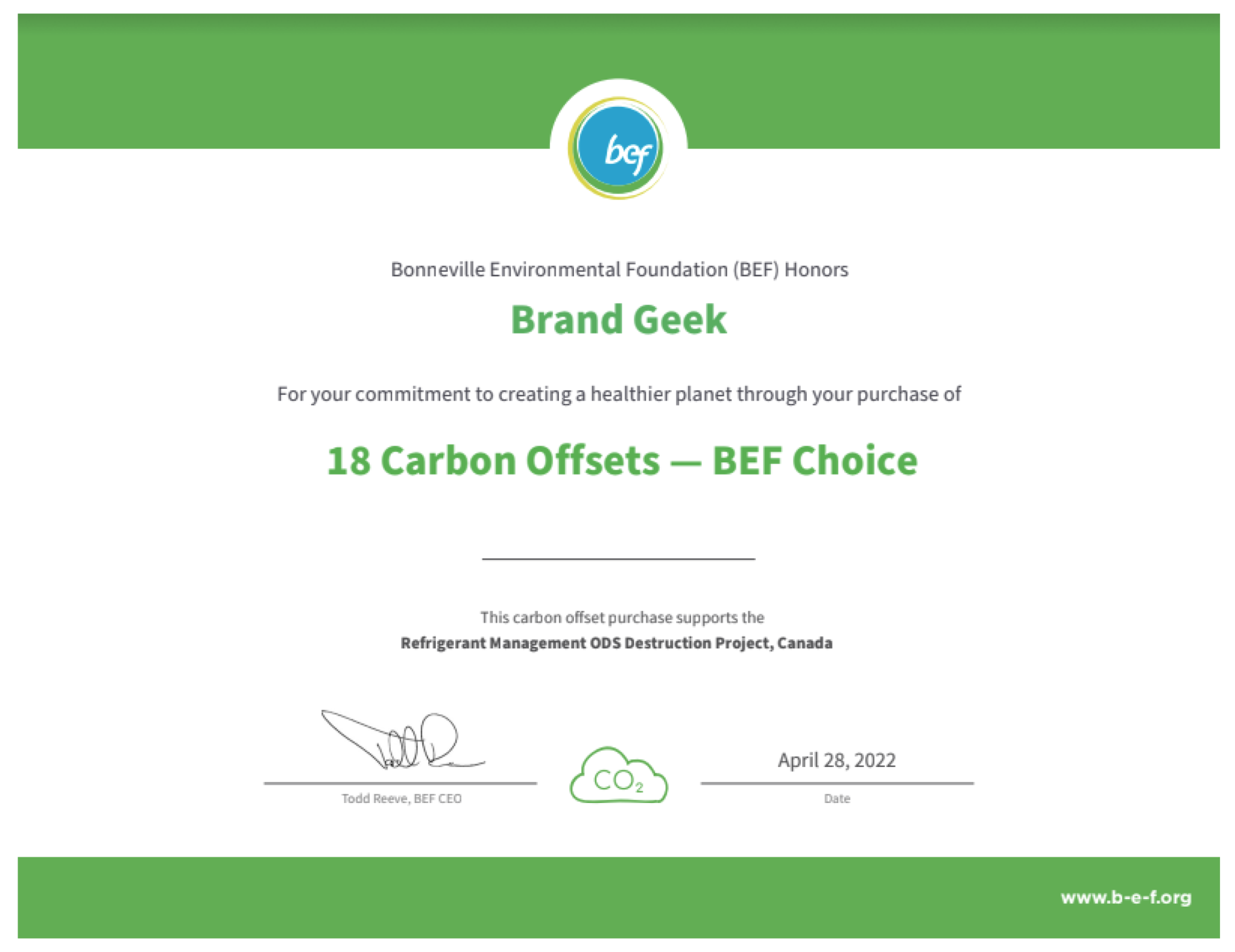Brandgeek proudly supports Mountain Area Preservation and is humbled to be…
Let the EXPO (West) begin.
Managing the Non-GMO Message
This panel was standing room only, with people crowding in the doorways and aisles to learn how to best convey that their products do not contain genetically modified organisms (GMOs). GMOs are plants or animals that are bred with DNA from more than one species. Most GMOs are engineered for herbicide tolerance, not for greater yield as the chemical companies would have us believe.
Megan Westgate, was the first of 3 panelists to speak (and the only one I saw). She is the Executive Director of the Non-GMO project, which has more than 60K Facebook fans who are using social media to help steer the non-GMO movement. Branding organic and natural (non-GMO) products presents a unique challenge in that it is as important to convey both what’s in the products as well as what is not.
Megan suggested that messaging about non-GMOs is most effective when it starts with basics, appeals to common sense, remains positive, and focuses on appealing to moms and families, since the messages that appeal to them also tend to appeal to a wider audience. 60 leaders in the natural products community met in Boulder last summer (2011) and formed a working group to create a Non-GMO Communications Toolkit, which is still a work in progress and has not yet been released. Once released, the toolkit will help organic and natural brands communicate the non-GMO message with clarity, consistency & effectiveness regardless of their organization or approach. The toolkit working group has identified the top 3 most effective talking points, which are designed to harmonize the communications emanating from various sources:
1. Right to know — We have the right to know what’s in the food we are eating and feeding our families and we deserve to make an informed choice about it.
2. Ethics of experimentation — Genetically engineered food have not been adequately tested and it’s unethical to experiment on unwitting consumers.
3. Labeling — Nearly 50 countries worldwide require mandatory GMO labeling and some have restricted or banned GMO food sale and production all together.
Megan also mentioned two other legislative initiatives in the non-GMO space, Just Label It and California Right to Know 2012.
JustLabelIt.com — is a petition to have GMO labeled, they have 850K signatures thus far; trying to reach 1mil by end of this month to be submitted to FDA to show support for federal initiative over 5k organizations involved.
California Right to Know 2012 is a ballot initiative to label GMOs in food products offered for sale in California, with the hope of starting there and then branching out to other parts if the country.
EXPO WEST Day 1
Brand Acceleration Track
Shazi Visram, CEO and President of Happy Family Brand
This track began with the moderator encouraging everyone to sign the Just Label It petition and California residents to sign the California Right to Know petition.
Happy Family Brand (formerly known as Happy Baby) was the first presenter in the brand acceleration track. Happy Baby was conceived (pun intended) in 2006 and presently is No. 68 on Inc’s top 100 having been named the fastest growing baby food company. It all began in 2003 when Shazi had a life changing conversation with a friend with twins who was upset about feeling like a bad mom because she wasn’t feeding her kids organic homemade baby food. Shazi recognized an opportunity to create a meaningful warm brand to fill in a gap in American baby food, which previously wasn’t intended to nourish babies. Shazi was struck by how many luxury items — strollers, toys and apparel, among other things — there were for babies but none were food-related. The company’s goal was to create a warm, fun and enlightening brand based on nutrition. It launched with frozen line of baby food in 2006 resulting in $116,000 in annual sales. In 2011 Happy Family’s sales were $35 million and projections are for double that in 2012. Happy Family is also the only business in its space that isn’t private equity backed. It is growing rapidly (and happily) launching 15 new products at this EXPO WEST show.
Happy Family launched the first probiotic baby food, the first organic puff snacks for babies and the first freeze dried yogurt snack for babies. When Happy Baby found its signature pouch packaging, which has 10% of the environmental footprint of glass jars, everything changed.
Shazi recommended that businesses step it up as they grow. While Happy Family was fortunate enough to have been awarded $50,000,000.00 in free advertising from American Express, for most consumer brands their packaging is their primary marketing and advertising. Shazi also strongly recommended that brand owners ask people for help and create an Advisory Board. Happy Family’s Advisory Board members include Seth Goldman, Demi Moore, Sara Blakely, Jim Gold, Guy Oseary and Nick Giannuzzi an attorney who was in house with Vitamin Water and who represents lots of CPG companies including Happy Family. Shazi also encouraged everyone to stay happy and healthy and true to their values. Although her company has realized immense success, for Shazi it is not about the money, it’s about contributing to the common good.
Business and Legal Issues for Emerging & Later Stage Companies
There were two panelists on this panel: Fern O’Brien who is an attorney in Boulder, CO that helps emerging growth companies and Ross Shell, who is the CEO at Red Idea Partners, also in Boulder. Ross suggested that companies must be founded on components of idealism and enthusiasm tempered by realism. He encouraged everyone to try to stay focused on their goals and make sure to measure metrics. Fern began by discussing legal structures and suggested that the first step everyone should take is determining who will own & run the company. Fern suggested that everyone be sure to put all agreements in writing and she suggested people should not be afraid to change direction for their products. Ross said in the product world the stress must be in getting the brand right. He suggested investing in branding and Fern recommend including work for hire language in all creative contracts. They both also strongly suggested that businesses create advisory boards (with modest compensation) who understand your vision and what it’s like to be an entrepreneur to help them think though different challenges. Both panelists also suggested that you make sure all advisors get along with one another. Fern suggested business owners should ensure that supporters sign invention assignment agreements and Ross suggested making sure you have a business attorney who understands your business and the areas of law pertinent to your business (imagine!).
Fern confirmed the importance of retaining knowledgeable professional service providers & to handle legal services, finance (looking forward) and accounting (looking backwards) on the front end because it’s always more expensive on the back end. Ross suggested that you go through your financials painstakingly as it is invaluable and understanding finance will help you guide your business. Ross also suggested conservatism in financial projections, which Fern characterized as defensible assumptions. The Board of Directors can be held personally liable for failure to pay payroll tax, of which Fern stressed the importance. Ross also said consultants can be hired and fired readily which makes them preferable to employees in certain circumstances. Insurance is critical, especially D&O insurance which is necessary to pull together a good Board who’s likely to want to know you have it.






This Post Has 0 Comments